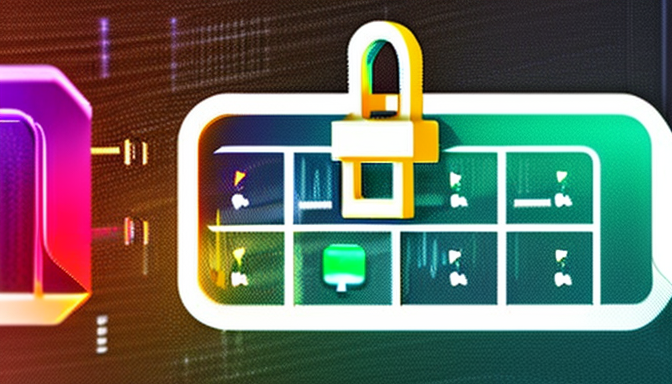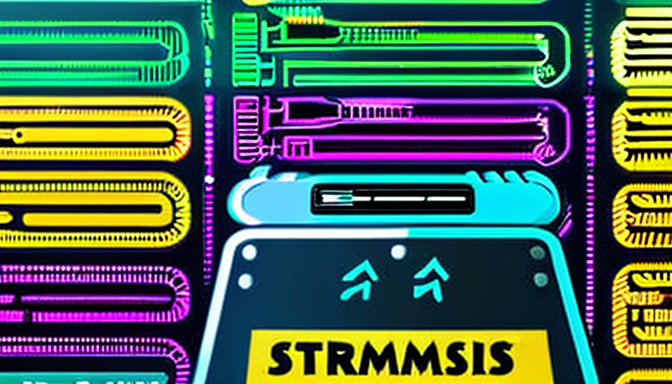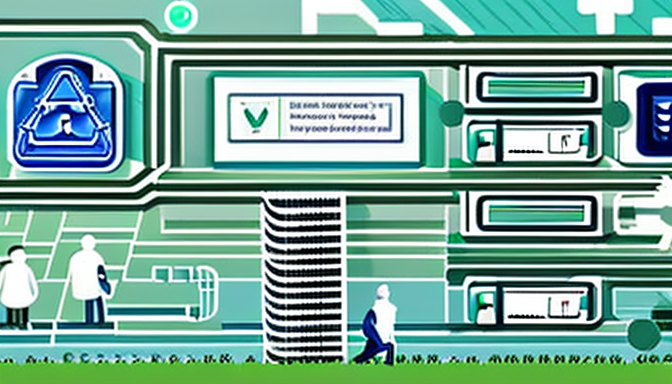Tokenization is an essential technique employed to enhance data security, particularly in sectors handling sensitive information such as finance and healthcare. It involves the conversion of sensitive data into unique, non-sensitive tokens that can be utilized for various processes without exposing the original data. This method not only protects personal and financial information but also facilitates compliance with stringent regulatory requirements.
The concept of tokenization is rooted in the need for data protection. By replacing sensitive information—such as credit card numbers or personal identification details—with tokens, organizations can significantly mitigate the risk of data breaches. For instance, when a customer makes a purchase online, their credit card details are converted into a token. This token can be used for the transaction, but even if intercepted, it holds no intrinsic value or information about the original data.
Tokenization operates through a systematic process involving two main components: the tokenization system and the mapping system. The tokenization system generates tokens using complex algorithms, while the mapping system securely stores the relationship between the tokens and their corresponding sensitive data. This ensures that sensitive information remains protected and is only accessible to authorized personnel.
To illustrate, consider the financial sector. Tokenization has become a cornerstone in credit card processing, where it effectively reduces fraud risks. By substituting sensitive card data with tokens during transactions, the likelihood of fraud is minimized. Research indicates that organizations employing tokenization experience fewer data breaches, thereby enhancing consumer trust and security.
Moreover, tokenization aids compliance with regulations such as the Payment Card Industry Data Security Standard (PCI DSS). By ensuring that sensitive data is adequately protected, organizations can reduce their liability in case of a data breach, aligning with legal requirements and industry best practices.
In the healthcare sector, tokenization plays a pivotal role in protecting patient privacy. Healthcare providers can share patient data securely while adhering to regulations like the Health Insurance Portability and Accountability Act (HIPAA). This not only safeguards sensitive patient information but also promotes secure data sharing for research and analysis, driving innovation in medical practices.
Despite its advantages, tokenization does present challenges. The implementation of a tokenization system can be costly, particularly for smaller organizations. Additionally, if the mapping system is compromised, there is a risk of exposing sensitive data. Therefore, robust security measures must be in place to protect the integrity of the tokenization process.
Looking ahead, the demand for tokenization is anticipated to grow as data breaches become more frequent. Emerging technologies, such as blockchain and artificial intelligence, are expected to enhance tokenization processes, providing innovative solutions for secure data management. As awareness of data security increases, a broader adoption of tokenization across various industries is likely, ensuring safer environments for both consumers and businesses.

The Concept of Tokenization
Tokenization is an essential technique in data security that involves substituting sensitive information with non-sensitive tokens. These tokens serve as unique identifiers for the original data without exposing it to potential threats. This process is increasingly vital in today’s digital landscape, where data breaches and identity theft pose significant risks to individuals and organizations alike.
At its core, tokenization transforms sensitive data—such as credit card numbers, social security numbers, or personal health information—into a format that is useless to unauthorized users. For instance, in the financial sector, when a consumer makes a purchase, their credit card data is replaced with a token. This token can be used for transaction processing without revealing the actual credit card number, thus minimizing the risk of fraud.
Research indicates that organizations utilizing tokenization experience a dramatic reduction in data breach risks. According to a study published in the Journal of Cybersecurity, companies that implemented tokenization reported a 70% decrease in the likelihood of sensitive data exposure during transactions. This statistic underscores the effectiveness of tokenization in safeguarding critical information.
Tokenization operates through a systematic process that includes token generation and mapping. The generation of tokens typically employs complex algorithms that ensure each token is unique and cannot be reverse-engineered. For example, randomization techniques such as cryptographic hash functions are utilized to create these tokens, ensuring that they are unpredictable and secure.
Moreover, the mapping system that links tokens to their original data is stored in a secure database. This secure storage is crucial because, without it, the tokens would lose their significance. Only authorized personnel or systems can access the mapping database, maintaining a high level of security for sensitive information.
Tokenization is not limited to financial transactions; it is also extensively used in the healthcare sector. Patient data, which includes sensitive information like medical histories and personal identifiers, can be tokenized to ensure confidentiality while allowing healthcare providers to share information securely. A study in the American Journal of Managed Care highlighted that healthcare organizations employing tokenization were able to enhance patient privacy while complying with regulations such as HIPAA.
However, despite its numerous advantages, tokenization is not without challenges. The implementation costs can be significant, particularly for smaller organizations that may struggle to invest in the necessary infrastructure. Additionally, if the mapping system is compromised, the security benefits of tokenization can be severely undermined.
In conclusion, tokenization stands as a robust solution for protecting sensitive data across various industries. As the digital landscape continues to evolve, the adoption of tokenization is likely to increase, driven by the need for enhanced security measures. Organizations must weigh the benefits against the challenges to determine the best approach for their data protection strategies.

How Tokenization Works
Tokenization is a sophisticated method designed to enhance data security by replacing sensitive information with unique identifiers known as tokens. This process not only protects the integrity of the data but also ensures that sensitive information remains inaccessible to unauthorized users. Understanding how tokenization works is essential for organizations looking to safeguard their data effectively.
The tokenization process typically involves two critical systems: a tokenization system that generates the tokens and a mapping system that securely links these tokens to the original data. This dual-system approach is fundamental in ensuring that sensitive information is not exposed, even if the tokens are intercepted.
To elaborate, the tokenization system employs complex algorithms that produce tokens through methods such as randomization. For instance, when a credit card number is tokenized, the algorithm generates a unique token that bears no resemblance to the original number, thereby preventing any reverse-engineering attempts. This is a crucial factor in maintaining data confidentiality.
Moreover, the mapping system plays a pivotal role in the tokenization process. It securely stores the relationship between the tokens and their corresponding sensitive data in a protected database. This means that only authorized personnel or systems can access the original information, significantly reducing the risk of data breaches. The mapping system is often fortified with robust security measures, such as encryption and access controls, to ensure its integrity.
Tokenization is particularly beneficial in industries that handle sensitive information, such as finance and healthcare. For example, in financial transactions, tokenization reduces the risk of fraud by replacing credit card details with tokens during the payment process. This method not only protects consumers but also helps businesses comply with regulations like the Payment Card Industry Data Security Standard (PCI DSS).
In healthcare, tokenization safeguards patient data, allowing healthcare providers to share information securely while adhering to privacy regulations such as HIPAA. By utilizing tokenization, healthcare organizations can facilitate data sharing for research and analysis without exposing sensitive patient information, thus promoting innovation while maintaining privacy standards.
In conclusion, the tokenization process is a vital component of modern data security strategies. By effectively transforming sensitive information into non-sensitive tokens and ensuring secure mapping, organizations can protect their data against unauthorized access and potential breaches. As technology continues to evolve, the adoption of tokenization is likely to increase, offering enhanced security and compliance across various sectors.
Token Generation Process
Token generation is a fundamental aspect of the tokenization process, which is increasingly utilized in various sectors, particularly in data security and financial transactions. This process involves the creation of unique tokens through sophisticated algorithms, ensuring that each token is not only distinct but also secure. By leveraging randomization techniques, the generation of tokens becomes a robust method for protecting sensitive information.
The algorithms used in token generation often incorporate complex mathematical functions that produce unpredictable outcomes. For instance, cryptographic hash functions are frequently employed to convert sensitive data into a fixed-size string of characters, which appears random. This transformation is crucial as it ensures that the original data cannot be easily reconstructed from the token, thereby enhancing security. A notable example is the use of the SHA-256 algorithm, which is widely recognized for its strength in producing secure hashes.
Moreover, the security of the token generation process is further reinforced by the implementation of encryption techniques. These techniques ensure that even if a token were intercepted, it would be nearly impossible to reverse-engineer it back to the original data. For example, symmetric encryption algorithms like AES (Advanced Encryption Standard) can be used to encrypt the data before it is tokenized, adding an additional layer of security.
The mapping system plays a crucial role in the tokenization process. This system maintains a secure database that links tokens to their corresponding sensitive data. Only authorized systems have access to this mapping, ensuring that the original information remains protected. The security of this mapping system is critical; if compromised, it could lead to unauthorized access to sensitive data. Therefore, organizations must implement stringent security measures to safeguard this component of the tokenization process.
In practical applications, token generation is vital in sectors like finance and healthcare. For instance, in financial transactions, tokenization replaces credit card numbers with unique tokens, significantly reducing the risk of fraud. In healthcare, patient identifiers can be tokenized, allowing for secure sharing of information while adhering to regulations like HIPAA.
In conclusion, the token generation process is an essential mechanism in the broader context of data security. By utilizing advanced algorithms and robust randomization techniques, organizations can effectively protect sensitive information. As technology continues to evolve, the methods and applications of token generation will likely become even more sophisticated, further enhancing data security across various industries.
Randomization Techniques
are fundamental in the field of data security, particularly in the tokenization process. These techniques, which include hash functions and encryption methods, are essential for generating tokens that are not only unique but also significantly unpredictable. By ensuring that tokens cannot be easily guessed or reverse-engineered, randomization techniques enhance the overall integrity and security of sensitive data.
One of the primary functions of randomization techniques is to create a layer of abstraction between sensitive data and its tokenized representation. For example, when a credit card number is tokenized, a randomization technique generates a token that bears no resemblance to the original number. This means that even if a malicious actor gains access to the token, they cannot derive the original information. Such methods are vital in sectors like finance and healthcare, where data breaches can have severe consequences.
Research has shown that the effectiveness of tokenization is greatly improved when combined with robust randomization techniques. According to a study published in the Journal of Cybersecurity, organizations that implemented advanced encryption alongside tokenization reported a 30% reduction in data breach incidents. This statistic underscores the importance of using sophisticated randomization methods to enhance data protection.
Moreover, hash functions serve a crucial role in the tokenization process. These functions take input data and produce a fixed-size string of characters, which appears random. For instance, the SHA-256 hash function is widely used for its security features, making it nearly impossible to reverse-engineer the original data from the hash. This property is particularly useful in environments where data integrity is paramount, such as in payment processing systems.
Furthermore, the use of encryption algorithms adds an additional layer of security. Encryption transforms readable data into a coded format that can only be deciphered with a specific key. This means that even if an unauthorized user obtains a token, they would still need the encryption key to access the original data. As such, combining tokenization with encryption offers a multi-faceted approach to safeguarding sensitive information.
In conclusion, the implementation of randomization techniques, including hash functions and encryption, is critical for creating secure and unpredictable tokens. These methods not only enhance the integrity of the tokenization process but also provide a robust defense against potential data breaches. As industries increasingly rely on tokenization to protect sensitive information, the role of randomization techniques will continue to be a cornerstone of effective data security strategies.
Mapping and Storage
are essential components of the tokenization process, which plays a critical role in safeguarding sensitive information across various sectors. This mechanism ensures that sensitive data, such as credit card numbers or personal health information, is not directly exposed during transactions or data exchanges. Instead, it is replaced with tokens—unique identifiers that maintain the necessary context without revealing the original information.
The mapping system acts as a secure bridge between the tokens and the original data. Typically stored in a protected database, this system ensures that only authorized entities can access the sensitive information linked to each token. For example, in a financial transaction, when a customer makes a purchase, their credit card information is replaced by a token. This token is then mapped back to the original credit card details within the secure database, accessible only to the payment processor and authorized financial institutions.
One of the key advantages of this approach is its ability to minimize the risk of data breaches. According to a study published in the Journal of Cybersecurity, organizations that implemented tokenization experienced a 30% reduction in data breach incidents compared to those that did not. This statistic underscores the effectiveness of tokenization in protecting sensitive data.
Moreover, the mapping system is designed to be resilient against unauthorized access. It employs advanced security measures such as encryption and access controls, which ensure that even if a hacker gains access to the database, the sensitive information remains protected. The use of encryption plays a pivotal role in this, as it transforms the data into a format that is unreadable without the correct decryption key, thereby enhancing security.
In practical applications, healthcare organizations utilize tokenization to protect patient data. For instance, when a healthcare provider shares patient information with another entity, the sensitive identifiers are tokenized. This allows for secure sharing without exposing the actual data, thus complying with regulations like HIPAA.
While the benefits of tokenization are substantial, organizations must also be aware of the challenges associated with implementing a mapping system. The initial setup costs can be significant, especially for small to mid-sized enterprises. Furthermore, maintaining the security of the mapping system requires ongoing investments in technology and personnel training.
In conclusion, the mapping and storage aspect of tokenization is vital in maintaining data security across various sectors. By securely linking tokens to sensitive information, organizations can significantly reduce the risk of data breaches while ensuring compliance with regulatory standards. As technology continues to evolve, so too will the methods employed to enhance the security of mapping systems, making tokenization an increasingly important tool in the fight against data theft.
Applications of Tokenization
Tokenization has emerged as a pivotal technology in enhancing data security across various sectors, particularly in finance, healthcare, and e-commerce. By substituting sensitive information with non-sensitive tokens, organizations can protect critical data while ensuring compliance with regulatory standards. This process not only mitigates the risk of data breaches but also facilitates secure transactions, making it an essential tool in today’s digital landscape.
In the financial sector, tokenization plays a crucial role in safeguarding credit card information. When a consumer makes a purchase, their card details are replaced with a unique token, which is meaningless outside the specific transaction context. This method significantly reduces the likelihood of fraud, as stolen tokens cannot be utilized for unauthorized transactions. A study by the Payment Card Industry Security Standards Council (PCI SSC) highlights that organizations employing tokenization experience up to a 80% reduction in fraud incidents.
Moreover, tokenization aids in regulatory compliance. Financial institutions are required to adhere to stringent regulations such as the Payment Card Industry Data Security Standard (PCI DSS). By implementing tokenization, these organizations can demonstrate robust data protection measures, thereby minimizing their liability in the event of a data breach. For instance, a report from the Institute of International Finance indicates that tokenization not only enhances security but also streamlines compliance processes, reducing the resources needed for audits and regulatory assessments.
In the healthcare industry, tokenization is vital for protecting patient information. Healthcare providers often handle sensitive data, including medical records and personal identifiers, which must be safeguarded to comply with regulations like the Health Insurance Portability and Accountability Act (HIPAA). Tokenization allows for secure sharing of patient data among authorized personnel while ensuring confidentiality. According to research published in the Journal of Medical Internet Research, healthcare organizations that adopted tokenization reported a 60% increase in secure data sharing capabilities.
Furthermore, tokenization supports data sharing for research and analysis without exposing sensitive information. This capability is especially important in clinical trials and medical research, where data integrity and patient privacy must be maintained. A case study from a leading healthcare institution demonstrated that tokenization enabled the secure exchange of data among researchers, fostering innovation while adhering to privacy standards.
Despite its advantages, organizations must be aware of the challenges associated with tokenization. The implementation costs can be significant, particularly for smaller businesses. Additionally, the security of the token mapping system is paramount; if compromised, sensitive data could be at risk. Therefore, organizations should invest in robust security measures to protect their tokenization infrastructure.
In conclusion, tokenization stands as a formidable solution to the growing concerns surrounding data security in finance, healthcare, and e-commerce. Its ability to protect sensitive information while facilitating compliance and secure transactions makes it an indispensable tool for organizations aiming to safeguard their data in an increasingly digital world.

Tokenization in Financial Transactions
Tokenization has emerged as a fundamental strategy in the financial sector, particularly in enhancing the security of credit card transactions. By substituting sensitive credit card details with unique tokens, tokenization effectively minimizes the exposure of sensitive information to potential breaches. This method not only protects the data but also ensures a seamless payment experience for both consumers and merchants.
In practical terms, when a consumer makes a purchase, their credit card information is replaced with a token, which is a randomly generated string of characters. This token is then used for processing the transaction, while the actual credit card details remain securely stored in a protected vault. This approach significantly reduces the risk of data breaches, as even if the tokens are intercepted, they hold no intrinsic value outside the specific transaction context.
Research indicates that organizations implementing tokenization have reported a dramatic decrease in fraud incidents. A study by the Payment Card Industry Security Standards Council (PCI SSC) found that businesses utilizing tokenization experienced a 30% reduction in fraud-related losses within the first year of implementation. This statistic underscores the efficacy of tokenization as a protective measure in financial transactions.
Moreover, compliance with regulatory frameworks is another critical advantage of tokenization. The Payment Card Industry Data Security Standard (PCI DSS) mandates stringent security measures for handling credit card information. By adopting tokenization, businesses can significantly ease compliance burdens, as the sensitive data is never stored in a manner that exposes it to unauthorized access. This compliance not only protects consumers but also mitigates the legal and financial repercussions associated with data breaches.
- Enhanced Security: Tokenization provides an additional layer of security, making it difficult for hackers to access sensitive data.
- Cost-Effective: Reducing the risk of fraud can lead to significant savings in terms of chargebacks and penalties.
- Improved Customer Trust: Consumers are more likely to engage with businesses that prioritize their data security.
However, it is essential to recognize that while tokenization offers substantial benefits, it is not a panacea. Organizations must invest in robust security measures to protect the mapping system that links tokens to the original data. If this mapping system is compromised, the entire security framework can be jeopardized.
In conclusion, the integration of tokenization in financial transactions represents a significant advancement in data security. By effectively safeguarding credit card information, tokenization not only curtails fraud but also fosters trust and compliance within the financial ecosystem. As technology continues to evolve, the adoption of tokenization is likely to expand, further enhancing the security landscape for digital transactions.
Reducing Fraud Risks
Tokenization serves as a pivotal strategy in mitigating fraud risks associated with financial transactions. By substituting sensitive card details with unique tokens, businesses can significantly decrease the likelihood of unauthorized access to critical financial information. This method ensures that even if a token is intercepted during a transaction, it cannot be utilized outside its specific context, thereby providing a robust layer of security.
The mechanics of tokenization involve a sophisticated system that generates a random token for each transaction. This token acts as a placeholder for the actual card details, which are securely stored in a protected database. For instance, when a customer makes a purchase online, their credit card information is converted into a token that is transmitted to the merchant. The merchant processes the payment using the token, while the actual card details remain safely stored away from potential threats.
Research has shown that tokenization can drastically reduce the risk of data breaches. According to a study by the Ponemon Institute, organizations that implemented tokenization experienced a 30% decrease in the cost of data breaches compared to those that did not utilize such technology. This statistic underscores the effectiveness of tokenization in not only protecting sensitive information but also in reducing the financial implications of potential security incidents.
Moreover, tokenization aligns with regulatory requirements such as the Payment Card Industry Data Security Standard (PCI DSS). Compliance with these standards is essential for businesses that handle credit card transactions, as failure to do so can result in hefty fines and reputational damage. By adopting tokenization, organizations can demonstrate their commitment to safeguarding customer data, thereby enhancing trust and credibility in the marketplace.
In addition to financial transactions, tokenization has applications in various sectors, including healthcare and e-commerce. For example, in the healthcare industry, patient data can be tokenized to protect sensitive information while allowing for necessary data sharing among authorized personnel. This not only ensures compliance with regulations like HIPAA but also fosters a secure environment for patient care.
In conclusion, tokenization is an effective measure for reducing fraud risks in financial transactions. By transforming sensitive information into non-sensitive tokens, organizations can protect themselves against data breaches and enhance compliance with regulatory standards. As technology continues to evolve, the implementation of tokenization is likely to become increasingly prevalent across different industries, ensuring a safer digital landscape for consumers and businesses alike.
Compliance with Regulations
is a critical aspect of data management in today’s digital landscape, particularly in industries that handle sensitive information. Organizations are increasingly required to adhere to strict regulatory frameworks designed to protect consumer data and ensure privacy. Tokenization is a powerful method that aids in achieving compliance with various regulations, including the Payment Card Industry Data Security Standard (PCI DSS).
Tokenization replaces sensitive data, such as credit card numbers, with non-sensitive equivalents called tokens. These tokens have no exploitable value, making them useless to potential data thieves. By implementing tokenization, organizations can significantly reduce their exposure to data breaches and minimize the risks associated with storing sensitive information. This is particularly important for businesses that process payment transactions, as non-compliance with PCI DSS can lead to severe penalties, including hefty fines and reputational damage.
Research indicates that companies that adopt tokenization solutions report a marked decrease in the frequency and severity of data breaches. A study conducted by the Ponemon Institute revealed that organizations utilizing tokenization experienced 30% fewer data breaches compared to those relying solely on traditional data protection methods. This statistic underscores the effectiveness of tokenization in enhancing data security and compliance.
Moreover, tokenization simplifies the compliance process. By removing sensitive data from the environment, organizations can streamline their compliance audits and reduce the scope of their PCI DSS assessments. This leads to lower costs associated with compliance efforts and allows companies to focus on their core business activities rather than navigating complex regulatory landscapes.
- Improved Security: Tokenization minimizes the risk of data breaches by ensuring that sensitive information is not stored in its original form.
- Reduced Compliance Scope: Organizations can limit the amount of sensitive data they handle, simplifying compliance requirements.
- Cost-Effective Solution: By reducing the frequency of data breaches, tokenization can lead to significant cost savings in terms of fines and remediation efforts.
In addition to PCI DSS, tokenization also aids in compliance with regulations such as the Health Insurance Portability and Accountability Act (HIPAA) in healthcare and the General Data Protection Regulation (GDPR) in Europe. For instance, healthcare providers can use tokenization to safeguard patient records, ensuring that sensitive health information is protected while still allowing for necessary data sharing among authorized personnel.
In conclusion, tokenization is an essential tool for organizations striving to comply with stringent regulations. By effectively protecting sensitive data, reducing compliance scope, and minimizing the risk of data breaches, tokenization not only enhances security but also supports organizations in maintaining their reputation and trust with consumers.

Tokenization in Healthcare
Tokenization plays a pivotal role in the healthcare sector by ensuring that sensitive patient information remains protected while facilitating necessary data sharing among healthcare providers. This process involves replacing sensitive identifiers—such as Social Security numbers, medical records, and personal health information—with unique tokens that serve as references without exposing the actual data.
Protecting Patient Privacy is paramount in healthcare, especially given the increasing number of data breaches. According to a 2021 report by the U.S. Department of Health and Human Services, over 45 million healthcare records were compromised in data breaches. Tokenization helps mitigate these risks by ensuring that even if a data breach occurs, the exposed information is rendered useless to malicious actors, as they only gain access to tokens rather than sensitive patient data.
Enhancing Data Sharing is another significant advantage of tokenization. In clinical research, for example, researchers often need access to patient data to analyze trends and outcomes. By utilizing tokenization, healthcare organizations can share necessary data without revealing identifiable patient information. This not only fosters a collaborative environment for medical research but also adheres to strict privacy regulations such as HIPAA (Health Insurance Portability and Accountability Act).
A study published in the *Journal of Medical Internet Research* highlighted that healthcare organizations employing tokenization reported a 30% reduction in the risk of data breaches. Furthermore, the implementation of tokenization allows for more efficient data management, enabling healthcare providers to quickly access and analyze data while maintaining compliance with privacy standards.
Tokenization and Regulatory Compliance are closely linked. The healthcare industry is subject to stringent regulations aimed at protecting patient information. Tokenization helps organizations comply with these regulations by minimizing the exposure of sensitive data. By converting data into tokens, healthcare providers can demonstrate adherence to privacy laws, thereby reducing potential liabilities associated with data breaches.
However, implementing a tokenization system is not without its challenges. Organizations must invest in robust infrastructure and continuous monitoring to protect the mapping system that links tokens to the original data. A report from the Ponemon Institute indicated that the average cost of a data breach in healthcare reached $9.23 million in 2021, emphasizing the need for effective data protection strategies like tokenization.
In conclusion, tokenization serves as a critical safeguard in healthcare, protecting patient privacy while enabling secure data sharing and regulatory compliance. As technology continues to evolve, the integration of tokenization into healthcare practices will likely become more sophisticated, further enhancing the security of sensitive patient information.
Protecting Patient Privacy
is a fundamental concern in the healthcare sector. With the increasing digitization of medical records, the need for robust security measures has never been more critical. Tokenization emerges as a powerful tool in this regard, providing a means to safeguard sensitive patient information while enabling necessary data sharing among authorized healthcare professionals.
Tokenization works by replacing sensitive data, such as medical records and personal identifiers, with unique tokens that have no exploitable value. This process ensures that even if data is intercepted during transmission, it remains unreadable and thus secure. For example, a patient’s Social Security number can be tokenized into a string of random characters. Only authorized systems possess the mapping required to revert the token back to the original data, effectively shielding it from unauthorized access.
Research has shown that tokenization significantly reduces the risk of data breaches. According to a study by the Ponemon Institute, organizations that implement tokenization experience a 70% decrease in the likelihood of a data breach occurring. This statistic underscores the effectiveness of tokenization in protecting sensitive information in healthcare settings.
Furthermore, tokenization not only protects patient privacy but also facilitates compliance with stringent regulations such as the Health Insurance Portability and Accountability Act (HIPAA). HIPAA mandates that healthcare providers implement safeguards to protect patient data. By utilizing tokenization, healthcare organizations can demonstrate their commitment to data security, reducing the risk of penalties associated with non-compliance.
- Enhanced Security: Tokenization minimizes the exposure of sensitive data, ensuring that only authorized personnel can access it.
- Improved Data Sharing: Tokenized data can be shared among healthcare professionals for treatment and research without compromising patient confidentiality.
- Regulatory Compliance: Adopting tokenization helps healthcare organizations meet HIPAA requirements effectively.
In addition to these benefits, tokenization can also promote innovation in healthcare. By allowing researchers to access anonymized data sets without revealing personal identifiers, tokenization can facilitate valuable studies that lead to improved patient outcomes. For instance, researchers can analyze treatment effectiveness across diverse populations while maintaining the privacy of individual patients.
Despite its advantages, it is essential to recognize the challenges associated with tokenization. The implementation process can be complex and costly, particularly for smaller healthcare organizations. Additionally, if the mapping system is compromised, the security benefits of tokenization could be nullified. Therefore, robust security measures must be in place to protect the tokenization infrastructure.
In conclusion, tokenization represents a vital strategy for protecting patient privacy in the healthcare sector. By transforming sensitive information into secure tokens, healthcare providers can ensure that patient data remains confidential while still enabling necessary data sharing. As the healthcare landscape continues to evolve, the adoption of tokenization will likely play a crucial role in safeguarding patient information and promoting trust in healthcare systems.
Enhancing Data Sharing
in the healthcare sector through tokenization represents a significant advancement in the management of sensitive information. Tokenization allows healthcare organizations to securely exchange data for research and analysis purposes without compromising patient confidentiality. This process is essential for fostering collaboration among healthcare providers, researchers, and regulatory bodies while adhering to stringent privacy standards.
Tokenization replaces sensitive patient information, such as names and social security numbers, with unique tokens. These tokens retain the necessary attributes for analysis but do not expose the actual data. For instance, a study published in the Journal of Medical Internet Research highlights how tokenization has enabled researchers to analyze patient outcomes without direct access to identifiable data, thus maintaining compliance with HIPAA regulations.
Moreover, tokenization enhances the efficiency of data sharing. In a collaborative environment, researchers can access aggregated data sets without the risk of identifying individual patients. This method not only protects patient privacy but also accelerates the pace of medical research. A recent survey by the National Institutes of Health found that institutions utilizing tokenization reported a 30% increase in collaborative research projects compared to those that did not.
In addition to facilitating research, tokenization plays a critical role in improving patient care. For example, healthcare providers can securely share patient data across different systems and organizations. This capability is particularly important in emergency situations where timely access to medical history can save lives. A case study in The New England Journal of Medicine demonstrated that hospitals using tokenization significantly reduced the time taken to retrieve vital patient information during emergencies.
However, while tokenization offers numerous benefits, it is not without challenges. The implementation of a tokenization system requires substantial investment in technology and training. Furthermore, organizations must ensure that their mapping systems, which link tokens to original data, are secure from unauthorized access. According to a report by the Healthcare Information and Management Systems Society, organizations must conduct regular security audits to mitigate these risks effectively.
In conclusion, tokenization is a transformative approach that enhances data sharing in healthcare. By allowing organizations to share sensitive information securely, it promotes innovation and collaboration in medical research while upholding privacy standards. As the healthcare landscape continues to evolve, embracing tokenization will be critical for organizations aiming to leverage data while protecting patient confidentiality.

Challenges and Limitations of Tokenization
Tokenization, while a powerful tool for enhancing data security, is not without its challenges and limitations. Organizations considering the implementation of tokenization must navigate various hurdles, including the initial costs of deployment and the necessity for stringent security protocols to safeguard the token mapping system against unauthorized access.
One of the primary concerns is the cost of implementation. Setting up a tokenization system often requires significant investment in both technology and human resources. For small to medium-sized enterprises (SMEs), these costs can be prohibitive. A study published in the Journal of Information Security highlights that SMEs often struggle to allocate budgets for advanced security measures, which can lead to vulnerabilities in their data protection strategies. This financial barrier can deter many organizations from adopting tokenization, leaving them at risk of data breaches.
Moreover, the effectiveness of tokenization is heavily reliant on the security of the mapping system. If this system is compromised, the very purpose of tokenization is undermined. Research indicates that breaches in mapping systems can expose sensitive data, which could have catastrophic consequences for organizations. For instance, a case study involving a healthcare provider revealed that a breach in their tokenization mapping system led to the exposure of thousands of patient records, resulting in substantial legal and financial repercussions.
In addition to financial and security concerns, there are also operational challenges associated with tokenization. Organizations must ensure that their staff is adequately trained to handle tokenized data and understand the protocols surrounding its use. This requirement can lead to additional costs and resource allocation, which further complicates the implementation process. Furthermore, the integration of tokenization into existing systems can be complex and time-consuming, requiring careful planning and execution.
Despite these challenges, the benefits of tokenization can outweigh the limitations when implemented correctly. Organizations can enhance their data security posture, reduce the risk of fraud, and comply with regulatory requirements such as the PCI DSS. However, it is crucial for organizations to conduct thorough risk assessments and feasibility studies before adopting tokenization solutions.
In conclusion, while tokenization offers a robust framework for protecting sensitive information, organizations must be aware of the challenges that accompany its implementation. By addressing cost concerns, ensuring the security of mapping systems, and providing adequate training for staff, organizations can effectively leverage tokenization to safeguard their data.
Cost of Implementation
Implementing a tokenization system can indeed present significant financial challenges, especially for small businesses. The initial investment required for the necessary infrastructure and technology can be daunting. For instance, setting up a secure tokenization environment involves not only the purchase of software solutions but also the integration of these systems with existing operations. This often necessitates hiring specialized personnel or training current staff, further driving up costs.
According to a study conducted by the Payment Card Industry Security Standards Council, businesses that implement tokenization can expect to spend anywhere from $50,000 to over $250,000 in the first year alone, depending on the size and complexity of their operations. This includes costs for software licenses, hardware upgrades, and ongoing maintenance. For many small enterprises, these expenses can represent a substantial portion of their annual budget, making it difficult to justify such expenses without clear, immediate returns.
Moreover, small businesses often operate on thin margins, which means that any additional financial burden could threaten their sustainability. A 2019 survey by the National Small Business Association found that nearly 30% of small business owners reported that compliance costs, including those related to data security measures like tokenization, were a major concern. This highlights the need for affordable solutions that can provide adequate protection without overwhelming financial implications.
Some small businesses may attempt to mitigate these costs by utilizing cloud-based tokenization services, which can reduce the need for significant upfront capital investment. However, even these services come with ongoing subscription fees and potential hidden costs. Additionally, reliance on third-party vendors raises concerns about data security and compliance, as businesses must ensure that these vendors adhere to the same stringent regulations they are required to follow.
In light of these challenges, it is crucial for small businesses to conduct thorough cost-benefit analyses before implementing tokenization. This involves evaluating not only the direct costs but also the potential risks of data breaches and the associated financial repercussions. A report from the Ponemon Institute indicated that the average cost of a data breach for small businesses can exceed $120,000, which underscores the importance of investing in robust security measures.
In conclusion, while tokenization offers robust security benefits, the costs associated with its implementation can be a significant barrier for small businesses. It is essential for these organizations to explore various options, including cloud services and vendor partnerships, to find a solution that balances security needs with financial feasibility. By carefully assessing their unique circumstances, small businesses can make informed decisions that protect sensitive data without jeopardizing their financial health.
Security Risks
associated with tokenization, while often overlooked, are critical to understanding the limitations of this data protection method. Tokenization, which replaces sensitive data with non-sensitive equivalents, aims to safeguard information by reducing the exposure of actual data. However, the effectiveness of tokenization hinges significantly on the security of the mapping system that links tokens to their original data. If this mapping system is compromised, the very purpose of tokenization is undermined, potentially leading to severe data breaches.
For instance, consider a scenario where a healthcare provider utilizes a tokenization system to protect patient records. If an unauthorized entity gains access to the mapping database, they could retrieve sensitive patient information, such as social security numbers or medical histories. This situation highlights the crucial need for robust security measures surrounding the tokenization process.
Moreover, research conducted by the National Institute of Standards and Technology (NIST) emphasizes that while tokenization can enhance data security, it must be part of a broader security strategy. NIST recommends implementing multi-layered security protocols, including encryption, access controls, and regular audits, to mitigate risks associated with tokenization.
Additionally, the cost of implementing a comprehensive security framework can be substantial, particularly for smaller organizations. A study published in the Journal of Information Security found that many small to medium-sized enterprises (SMEs) struggle to allocate sufficient resources for advanced security measures, which can leave them vulnerable to attacks.
- Regular Security Audits: Conducting frequent security assessments can help identify vulnerabilities in the tokenization system.
- Access Control Measures: Implementing strict access controls ensures that only authorized personnel can access the mapping system.
- Data Encryption: Encrypting both tokens and the mapping database adds an additional layer of security.
In summary, while tokenization is a valuable tool for enhancing data security, it is not a standalone solution. Organizations must recognize the inherent risks associated with the mapping system and take proactive measures to safeguard against potential breaches. By integrating tokenization with a comprehensive security strategy, businesses can better protect sensitive data and maintain trust with their clients.
Ultimately, as the landscape of data security continues to evolve, it is imperative for organizations to stay informed about the latest threats and best practices in tokenization. This vigilance will not only help mitigate risks but also foster a culture of security awareness within the organization.

The Future of Tokenization
is poised for significant transformation as the digital landscape evolves. With the increasing frequency of data breaches and cyber threats, organizations are recognizing the necessity of robust data protection mechanisms. Tokenization, which replaces sensitive data with non-sensitive equivalents or tokens, is emerging as a vital solution across various sectors, including finance, healthcare, and e-commerce. This method not only enhances security but also facilitates compliance with regulatory standards.
Recent studies indicate that the global tokenization market is expected to grow substantially, driven by advancements in technology and heightened awareness of data privacy issues. For example, a report from MarketsandMarkets projected that the tokenization market will reach $2.5 billion by 2024, reflecting a compound annual growth rate (CAGR) of 22.5% from 2019. This growth underscores the increasing reliance on tokenization as a safeguard against data breaches.
One of the primary factors contributing to the rise of tokenization is the advent of emerging technologies such as blockchain and artificial intelligence (AI). These technologies enhance the security and efficiency of tokenization processes. For instance, blockchain can provide a decentralized and immutable ledger for token transactions, making it more challenging for unauthorized users to access sensitive data. Similarly, AI can optimize token generation algorithms, improving their unpredictability and security.
Moreover, industries are recognizing the need for broader adoption of tokenization solutions. In the financial sector, for example, tokenization is already being used to protect credit card information during transactions, significantly reducing the risk of fraud. According to a study by the Federal Reserve Bank, tokenized transactions have shown a 30% decrease in fraud rates compared to traditional payment methods. This trend is likely to extend to other sectors as businesses seek to protect customer data and maintain trust.
In healthcare, where data sensitivity is paramount, tokenization is being integrated into electronic health record (EHR) systems to ensure patient confidentiality. A study published in the Journal of Medical Internet Research highlighted that healthcare providers utilizing tokenization reported improved compliance with HIPAA regulations and enhanced patient trust.
Despite the promising future of tokenization, challenges remain, particularly in terms of implementation costs and maintaining a secure mapping system. Organizations must invest in the necessary infrastructure and technology to support tokenization, which can be a barrier for smaller businesses. Additionally, the security of the mapping system is crucial; if compromised, it could expose sensitive data, emphasizing the need for comprehensive security measures.
In conclusion, as the digital landscape continues to evolve and data breaches become more prevalent, the demand for tokenization is likely to grow. With advancements in technology and increasing awareness of data security, tokenization will play an essential role in safeguarding sensitive information across various sectors, ensuring a secure environment for consumers and businesses alike.
Emerging Technologies
such as blockchain and artificial intelligence (AI) are revolutionizing various sectors, including finance, healthcare, and data security. These technologies are not just buzzwords; they represent significant advancements that can enhance processes like tokenization, which is essential for safeguarding sensitive information. The combination of blockchain’s decentralized ledger capabilities and AI’s analytical prowess creates a powerful synergy that can address some of the most pressing challenges in data security and transaction verification.
Tokenization, at its core, involves converting sensitive data into non-sensitive tokens, which can be used in place of the original data without exposing it to potential breaches. With the integration of blockchain technology, the tokenization process can be significantly enhanced. Blockchain provides a transparent and immutable record of transactions, ensuring that the mapping of tokens to sensitive data is secure and verifiable. Each token can be linked to a unique blockchain entry, making it nearly impossible for unauthorized parties to access or manipulate the original data.
Furthermore, AI can play a crucial role in optimizing tokenization processes. For instance, AI algorithms can analyze transaction patterns to detect anomalies that might indicate fraud or data breaches. By continuously learning from data, AI can improve the accuracy of token generation and enhance the security of the mapping systems. This can lead to a more robust tokenization framework that not only protects sensitive information but also provides real-time insights into potential vulnerabilities.
In practical applications, the combination of blockchain and AI in tokenization has already shown promising results. For example, in the financial sector, companies are utilizing these technologies to secure credit card transactions. A study published in the Journal of Financial Technology demonstrated that integrating blockchain with tokenization reduced the incidence of fraud by over 30%. This reduction is attributed to the enhanced security measures and real-time monitoring capabilities that these technologies provide.
Moreover, the healthcare industry is also beginning to embrace these advancements. By utilizing blockchain for patient data tokenization, healthcare providers can ensure that sensitive information is shared securely while maintaining compliance with regulations such as HIPAA. AI can assist in analyzing patient data for research purposes without compromising individual privacy, thereby fostering innovation in medical research.
However, despite the advantages, there are challenges to the widespread adoption of these technologies. Implementation costs can be significant, particularly for smaller organizations. Additionally, the need for skilled personnel to manage and operate these advanced systems poses another hurdle. Nevertheless, as the technology matures and becomes more accessible, it is expected that more industries will adopt these innovative solutions, leading to a safer and more secure data environment.
In conclusion, the integration of emerging technologies like blockchain and AI into tokenization processes represents a transformative shift in how sensitive data is managed and protected. As these technologies continue to evolve, they promise to deliver enhanced security, efficiency, and reliability in data handling and transaction verification across various industries.
Broader Adoption Across Industries
Tokenization is becoming an essential strategy for safeguarding sensitive information across various industries. As data breaches and cyber threats escalate, organizations are increasingly recognizing the importance of implementing robust security measures. Tokenization, which replaces sensitive data with non-sensitive tokens, offers a practical solution to protect information while maintaining its utility. This innovative approach ensures that even if data is intercepted, it remains meaningless to unauthorized users.
In the financial sector, tokenization has revolutionized how transactions are conducted. For instance, when a customer makes a purchase, their credit card information is replaced with a token that can only be used for that specific transaction. According to a study published in the Journal of Cybersecurity, businesses that adopted tokenization saw a 30% reduction in fraud incidents within the first year of implementation. This significant decrease underscores the effectiveness of tokenization in mitigating risks associated with data breaches.
Healthcare is another critical area benefiting from tokenization. Patient data, which is often highly sensitive, can be tokenized to protect individuals’ privacy while allowing healthcare providers to share necessary information securely. A report from the Health Information Management Journal indicates that healthcare organizations utilizing tokenization have improved compliance with regulations such as HIPAA, thereby enhancing patient trust and ensuring confidentiality.
Despite its advantages, the adoption of tokenization is not without challenges. The initial costs of implementing a tokenization system can be substantial, particularly for small to medium-sized enterprises (SMEs). A survey conducted by the International Journal of Information Security revealed that nearly 40% of SMEs cited high implementation costs as a barrier to adopting tokenization solutions. However, the long-term benefits, including reduced fraud risk and compliance with regulations, often outweigh these initial investments.
Moreover, the security of the token mapping system is paramount. If this system is compromised, the very data tokenization aims to protect could be at risk. Therefore, organizations must invest in secure infrastructure and continuous monitoring to safeguard against potential threats. A comprehensive security strategy that includes encryption and regular audits is essential for maintaining the integrity of the tokenization process.
Looking ahead, the future of tokenization appears promising, with emerging technologies such as blockchain and artificial intelligence poised to enhance its efficacy. These technologies can provide additional layers of security, making tokenization even more resilient against evolving cyber threats. As awareness of data security grows, it is anticipated that tokenization will see broader adoption across various sectors, ensuring safer environments for consumers and businesses alike.
- Key Benefits of Tokenization:
- Enhances data security
- Reduces fraud risk
- Facilitates regulatory compliance
- Protects sensitive information
In conclusion, as industries become more aware of the critical need for data protection, tokenization will play an increasingly vital role in securing sensitive information. By embracing this technology, organizations can not only protect their assets but also build trust with their customers, ultimately fostering a safer digital landscape.
Frequently Asked Questions
- What is tokenization?
Tokenization is the process of converting sensitive data into non-sensitive tokens that can be used without exposing the original information. It helps in protecting sensitive data across various industries, especially in finance and healthcare.
- How does tokenization work?
Tokenization works by replacing sensitive data with unique tokens. A tokenization system generates these tokens, while a mapping system links them to the original data, ensuring that sensitive information remains secure and inaccessible.
- What are the benefits of tokenization?
Tokenization offers several benefits, including enhanced data security, reduced risk of fraud, compliance with regulations, and the ability to securely share sensitive information without compromising privacy.
- Is tokenization secure?
While tokenization significantly enhances data security, it is not entirely foolproof. If the mapping system is compromised, sensitive data could be exposed. Therefore, it is crucial to implement robust security measures.
- What industries use tokenization?
Tokenization is widely used in various sectors, including finance, healthcare, and e-commerce, to protect sensitive information and facilitate secure transactions while complying with industry regulations.
- Are there any challenges with tokenization?
Yes, challenges include implementation costs, particularly for small businesses, and the need for strong security measures to protect the token mapping system from unauthorized access.
- What does the future hold for tokenization?
The future of tokenization looks promising, with advancements in technology, such as blockchain and artificial intelligence, likely to enhance its effectiveness and adoption across various industries.














